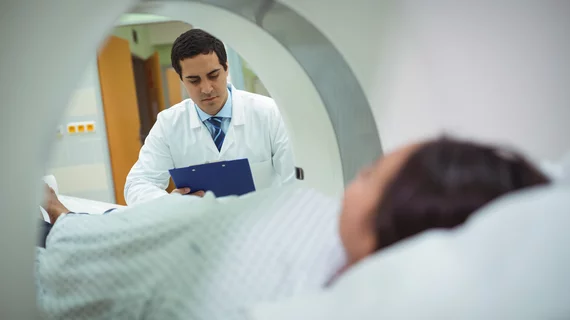Informational MRI booklet helps patients rest easy prior to exam time
Many patients shudder at the thought of the loud noise and enclosed space waiting for them inside of an MRI exam. But new research proposes a simple method to alleviate these fears.
Swedish clinicians designed an MRI booklet with exam-specific information and tested whether the intervention could help mitigate patients’ “scanxiety.”
Those who received the book prior to their exam read about the procedure, what they might expect, and how they might feel while inside the scanner. Others were offered a placebo booklet, with departmental information, but nothing relating to MRIs.
Overall, those who received the placebo information had a “significantly” higher risk of experiencing severe anxiety before their MRI. A. Bolejko, with Skåne University Hospital, and colleagues, however, found no differences in anxiety between both groups prior to and during their exam.
“Lack of information can worsen anxiety during MRI,” the authors wrote Aug. 1 in Radiography. “Patients' knowledge of MRI is usually scarce, and the source of information is often relative. Thus, written information on MRI is needed and welcomed by patients, and an informational booklet would be a simple means to ameliorate MRI distress.”
For their study, Bolejko et al. provided 95 participants with the MRI booklet while 102 received the placebo. Anxiety levels were measured using the State Trait Anxiety Inventory and supplementary questions for patient-reported outcomes.
In addition to the lower risk of pre-scan anxiety, the intervention group was more satisfied with the information they received. An overwhelming majority (87%) of all patients said it was important to have MRI-related information before an exam.
As with all new interventions, the authors said the costs associated with printing and distributing a booklet must be compared against its effects. They noted that further research is needed in this area, but on the surface, implementing their solution shouldn’t break the bank.
“It appears reasonable to consider the relatively small costs acceptable in view of the results presented here, particularly as previous studies have suggested that this type of intervention may also reduce motion artifacts,” the group concluded.

